
Injured Mama Skunk Ends Up Adopting An Orphan, The Next Day The Rescue Team Finds Her Babies
Each year, a large amount of wild animals are caught in illegal traps, causing horrible suffering for days and terrible injuries that often take their lives.
The Newhouse Wildlife Rescue team, which helps injured and orphaned wildlife in Chelmsford, Massachusetts, was used to seeing unfortunate situations but was shocked when they found a skunk who was a nursing mama caught in an illegal trap a few years ago.
More info: Newhouse Wildlife Rescue
The Newhouse Wildlife Rescue team found a mama skunk in an illegal trap, horribly injured and not knowing where her babies were
Image credits: Newhouse Wildlife Rescue / Facebook
The rescuers were not only upset by the fact that someone had put an illegal leg hold trap out that badly crushed the skunk’s leg, but also that she was a nursing mama who had no idea where her babies were.
“Leg hold traps are not only cruel but they are illegal,” was written on Newhouse Wildlife Rescue’s Facebook account, right after they found the injured mama skunk. “Days like these are the toughest. Days like these I am disappointed in my own species and sometimes it makes it hard to function,” the publication sadly continued.
After finally saving the mama skunk, animal control did everything they could to find her babies, but unfortunately, they didn’t have any luck locating them.
Then, a few days afterward, an orphaned baby skunk arrived at the facility and Jane Newhouse, a founder of Newhouse Wildlife Rescue, instantly came up with an idea.
“We knew we had a very lonely single baby with no siblings, and we had this very lonely mom with no babies,” the woman explained.
The team didn’t know exactly what would happen once they put the injured mama and orphaned baby together, but it was a chance for them to get along, which could be healing for both of them.
Luckily, it didn’t take long for the mama skunk to approach the baby as she would her own. She gently pulled him closer and placed her body in front of the baby to protect him from the humans who were watching.
“There’s more emotion there than I think a lot of people realize,” Jane said, noting that skunks are more complex than people give them credit for.
“They have a very powerful self-defense mechanism, and it gives them a bad name, but they’re actually really interesting, fascinating, emotional and very playful animals, from my observations as a wildlife rehabilitator,” she added.
The injured skunk had lost her babies somewhere, so the rescue team introduced her to an orphan baby
Image credits: Newhouse Wildlife Rescue / Instagram
Image credits: Newhouse Wildlife Rescue / Instagram
Image credits: Newhouse Wildlife Rescue / Instagram
Just one day after the mama skunk had created a very special bond with the orphaned baby, good news arrived: officers Courtney and Melinda from Lowell Animal Control did not give up on their search and eventually, all of the missing babies were found!
“My heart is so full! Her babies were finally found!” was written on Newhouse Wildlife Rescue’s Instagram.
“After being a few days without mom they were a bit dehydrated and lethargic. We stabilized them last night and introduced them this morning. Now they are a family once more – plus two new adopted siblings that came in before we found them,” the publication continued.
Newhouse Wildlife Rescue made sure that every single baby was taken care of until their mama was fully healed, then returned the skunks as one big, happy family to their natural habitat.
Once the mama skunk was fully healed, she was released back to nature together with her babies as one big, happy family
Image credits: Newhouse Wildlife Rescue / Instagram
Image credits: Newhouse Wildlife Rescue / Instagram
Image credits: Newhouse Wildlife Rescue / Instagram
Skunks that vary in appearance from black-and-white to brown, cream, or ginger-colored fur are mostly known for their stinky defense mechanism which can hit their target from about 10 feet away. If conditions are right, the spray can be carried as far as 20 feet. Yet, not everyone knows that skunks only use this defense as their last resort. Before that, they will raise their tail or click their teeth to warn potential threats to retreat.
Another interesting fact about these fascinating creatures is that, according to Treehugger, skunks are considered a major predator of bees! And they are very crafty in the way they entice the bees to come out, scratching the entrance of their beehive. Skunks are immune to bee venom, so eating them poses no risks.
Regarding the lifespan of these animals, it’s only about seven years in the wild, and young skunks have such a high mortality rate that many of them do not survive for more than a year. Although skunks don’t have many natural predators, unfortunately, humans are probably the most horrible of them all.
Therefore, this story about the saved skunk mama at Newhouse Wildlife Rescue inspires kindness in others and spreads awareness about illegal traps and how terribly they affect wild animals.
People on the internet couldn’t believe the cruelty of humans and were grateful to Newhouse Wildlife Rescue for saving the poor animals
Poll Question
Thanks! Check out the results:
Explore more of these tags
Thank you for this lovely story. You are such a beacon of light on BP these days - thank you from the bottom of my heart.
Thank you for this lovely story. You are such a beacon of light on BP these days - thank you from the bottom of my heart.

 Dark Mode
Dark Mode 

 No fees, cancel anytime
No fees, cancel anytime 






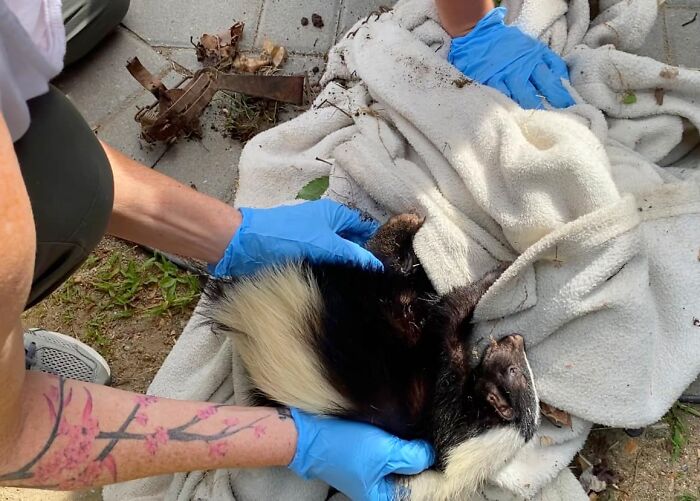
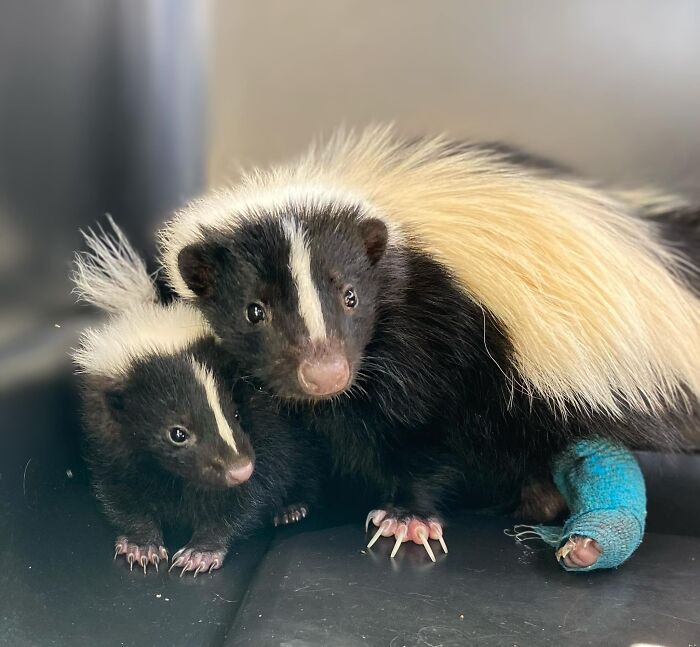
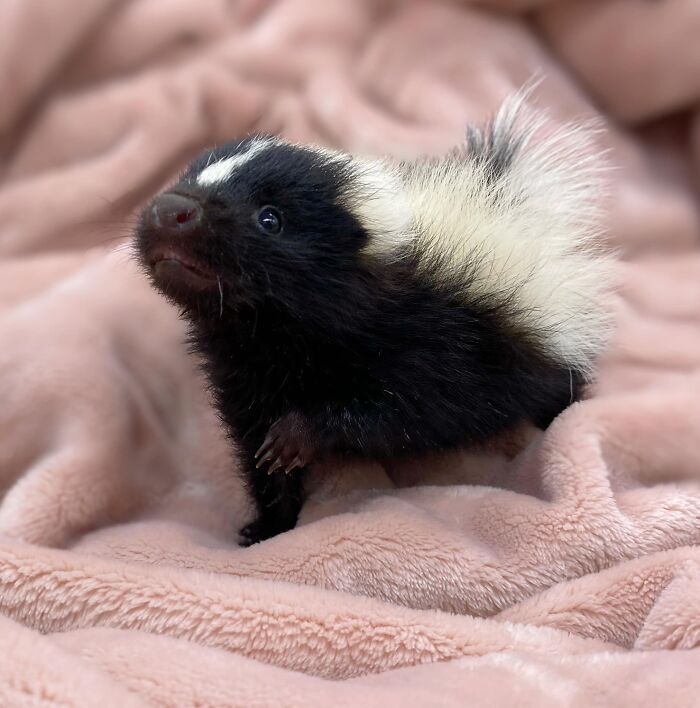
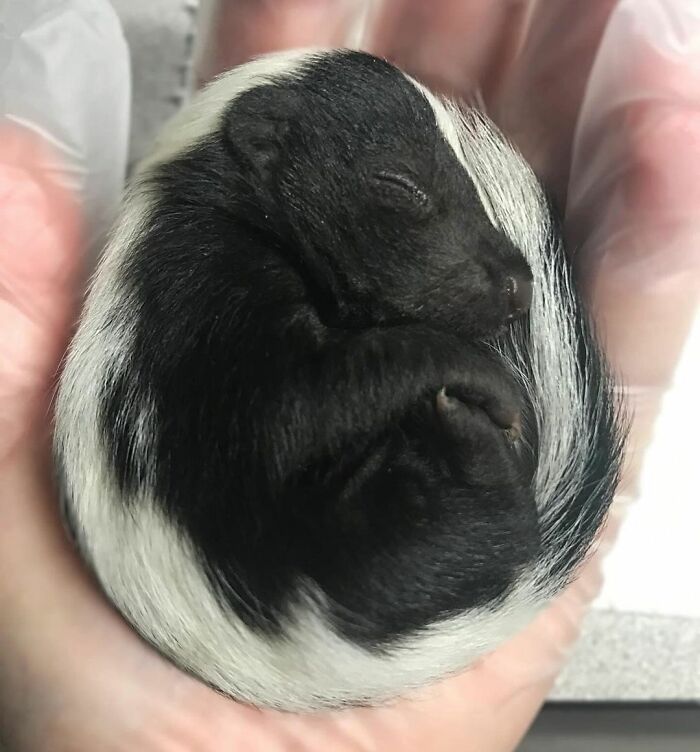
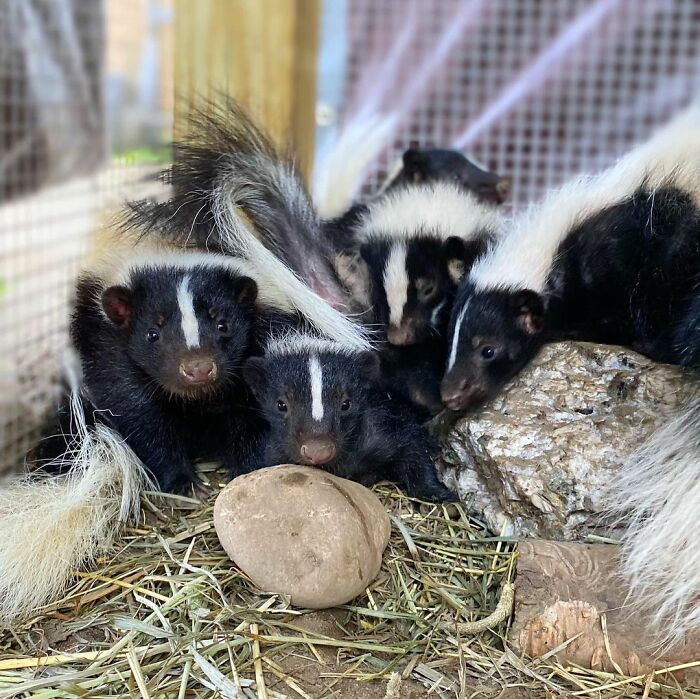
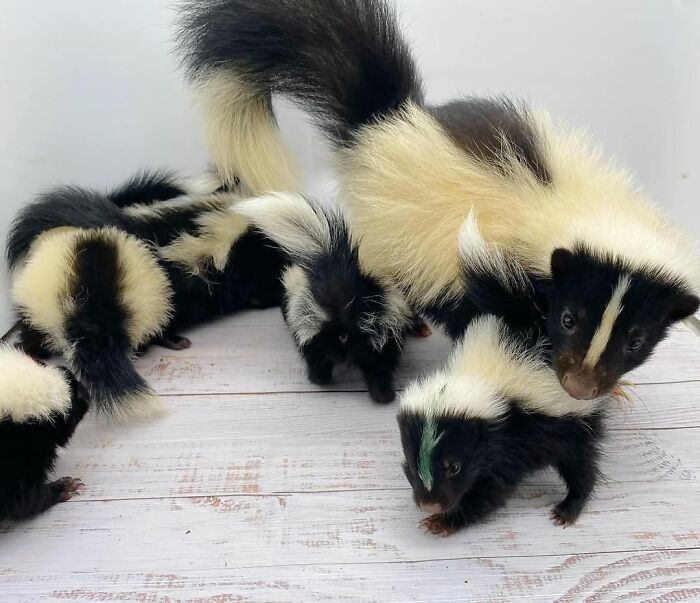
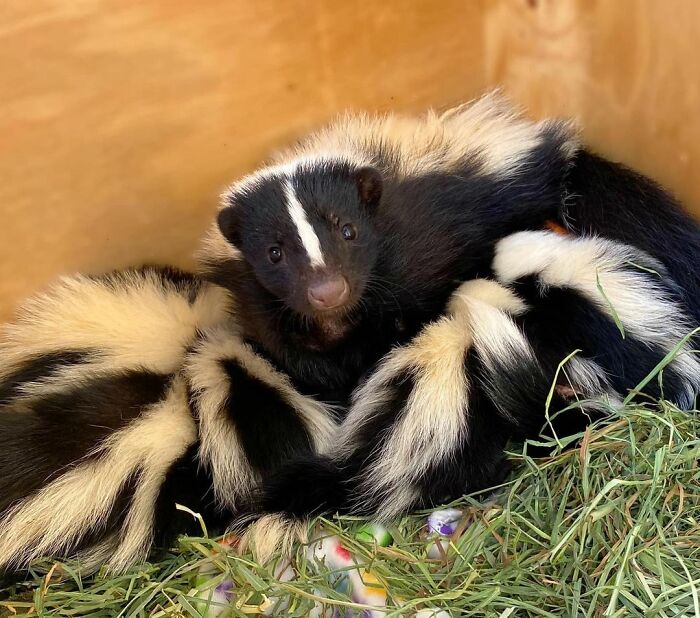

























































93
2